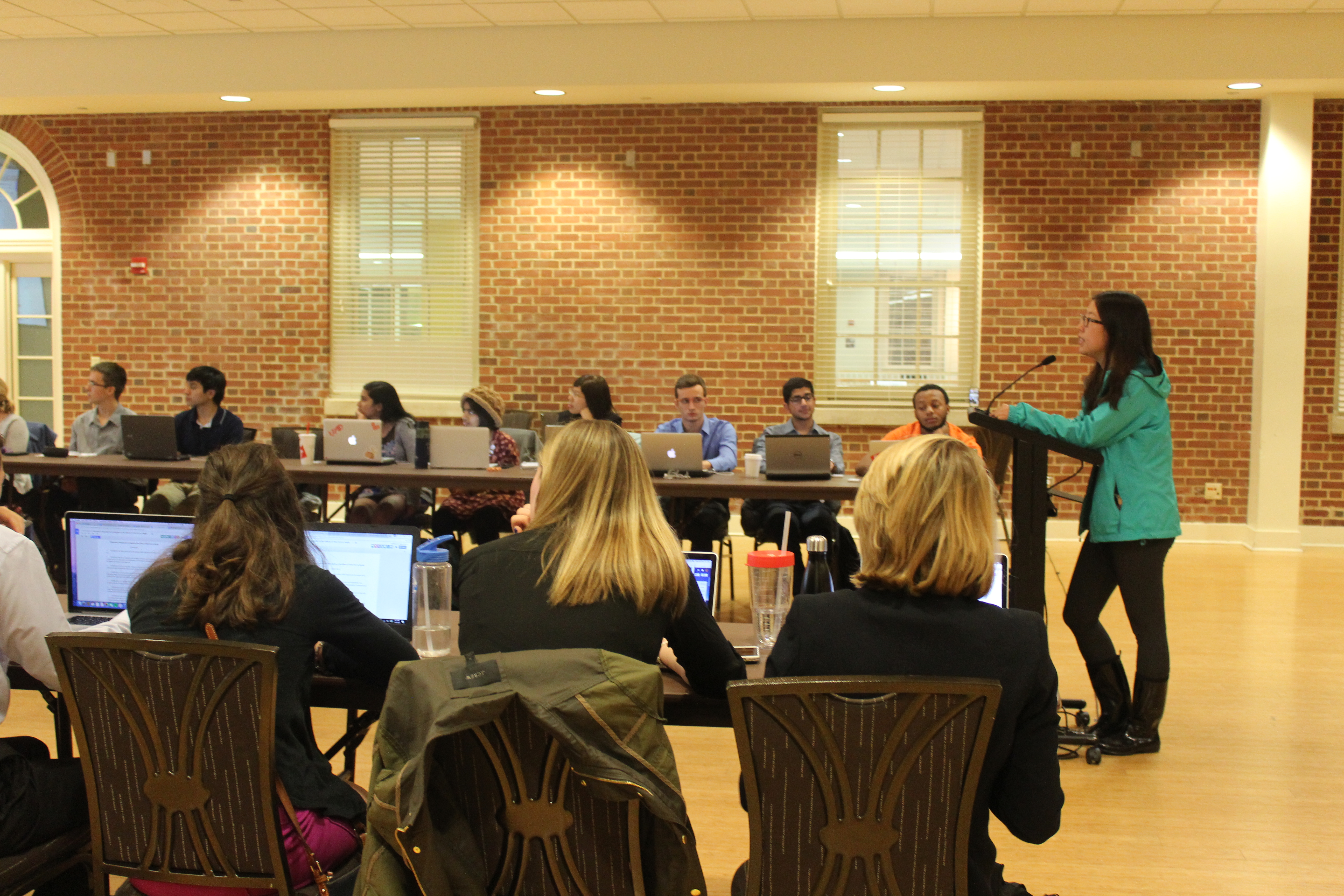The SGA voted Wednesday to propose an investigation into the effects turf fields have on University of Maryland students’ health.
The Student Government Association will now “encourage” the administration to test athletic fields at this university for potential carcinogens, the effects turf has on athletes’ health and whether there are better alternatives the university could choose, according to the bill, sponsored by Ellicott Community Representative Doron Tadmor.
The resolution passed 22-4 with three abstentions.
Crumb rubber, a recycled material used in some artificial turf, has been shown to have trace amounts of lead and other chemicals, and research says it may pose a threat to the health of those who use the fields, according to the bill.
This is only a first step in the process and does not commit the university to any changes yet, said Melanie Zheng, SGA director of health and wellness, in her committee report.
“It’s important to note that this bill is not suggesting in any way that the university officially switch out all the artificial turf. We’re just investigating and looking into the problem,” said Zheng, a senior biochemistry major.
Dana Rodriguez, the Residence Hall Association student groups and organizations liaison, told the SGA legislature she supported the bill. The university is going to replace the turf at LaPlata Beach “in the near future,” and could choose an alternative material if crumb rubber is found to be affecting students’ health, Rodriguez said.
While it’s unclear whether the use of turf fields may cause cancer, there is “definitely a correlation here” between crumb rubber and respiratory issues, said Gregory Brown, an off-campus outlying representative.
“I think more research into this is definitely necessary, especially if we want to help our athletes,” Brown said.
The SGA also unanimously approved a resolution urging individual colleges “to mandate sexual misconduct prevention training into all UNIV100 and equivalent courses.”
UNIV100 is a one-credit orientation seminar for all students entering this university, designed to “connect students to the resources they need to excel” in college, according to the university’s website.
While some UNIV100 classes included sexual misconduct training beginning this semester, other specialized versions of the course, such as those offered through the Honors College or CIVICUS living and learning program, did not, SGA President Katherine Swanson said.
The bill is meant to make the deans of each college aware that the SGA is pushing this measure. It does not specify a standardized course of action to deliver the training yet because “if we later find out that that’s not the best option, then we’re stuck,” said Taylor Aguiar, SGA director of sexual misconduct prevention, in her committee report.



